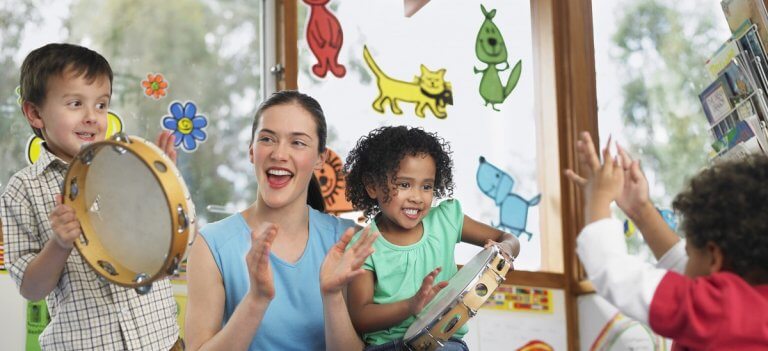
Recent years have seen a push for play-based learning in early education centres worldwide.
In fact, it’s part of New York state’s new standards for early learners, encouraging play and “active, joyful engagement”.
It’s nothing new for early-learning researchers, as years of research have shown just how important play is for early childhood development, and they have suggested incorporating it into early education.
Play is extremely important for brain development in young children. It’s believed that play shapes the structural design of the brain, and provides active exploration that helps in building and strengthening brain pathways, according to Lennie Barblett, Senior Lecturer at the Faculty of Education and the Arts, Edith Cowan University.
Play is good for the brain, increasing “flexibility and improved potential for learning later in life”, and allowing children to explore, identify, negotiate, take risks and create meaning.
Furthermore, children who frequently engage in quality play experiences are likely to develop memory skills, language development and can effectively regulate their behavior.

Source: Kelly Sikkema/Unsplash
But most learning centres choose to adopt the either/or approach, either focusing too much on academics or too much on unstructured playtime, also known as ‘free play’.
Early-learning researchers say that it doesn’t have to be one or the other, as play-based learning helps children adapt to academic-based learning in subjects like Math and Science.
Temple University Professor Kathy Hirsh-Pasek, an expert in developmental psychology, said, “Learning how to play teaches collaboration and community building, which aids language development through listening and talking. Language, in turn, is necessary for reading, writing, math, and every subject after. Critical thinking skills are also developed by creativity and innovation learned through play. And play teaches skills such as the confidence to learn from failures.”
Purposeful or guided play has proven successful in many learning centres. It’s different from free play in a few ways: the types of materials teachers choose, and the incorporation of more observation and feedback.
For example, teachers provide students with fabric to create their own dress-up games, instead of providing them with costumes and asking them to play with them.
Observation is also a big part, as for example, when a child plays ‘grocery store’, the teacher will engage with the student by asking them how many apples they should buy for their family, encouraging them to think critically and solve problems.
This allows children to learn mathematical and other concepts more efficiently by engaging them in hands-on learning.

Source: Shutterstock
Basically, a high-quality play-based programme should incorporate a daily schedule for active indoor and outdoor physical play, the integration of music, movement and creative expression, and adult-child interactions that model moderate to high levels of physical activity.
Studies have shown that play-based learning is more effective than direct-instruction approaches, which are the traditional academic-oriented teaching styles.
One study found that in addition to improving play skills and narrative language ability, play-based curricula has a positive influence on grammar acquisition.
This was found after observing two different groups of children over six months. The experimental group attended a school with a play-based curriculum; the children in the control group attended schools following a traditional curriculum.
With all the benefits and positive outcomes shown through play-based learning, it’s no wonder that it’s picking up in learning centres around the world, and parents today have more options to consider when choosing the right education for their little ones.
Liked this? Then you’ll love…
Should the K12 education system include experiential learning plans?
How family holidays help with children’s mental and emotional development







